Filter by
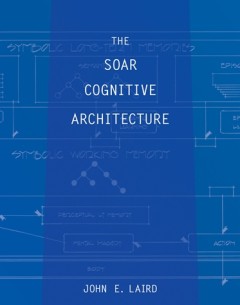
The Soar cognitive architecture / The Soar Cognitive Architecture
The definitive presentation of Soar, one AI's most enduring architectures, offering comprehensive descriptions of fundamental aspects and new components.
- Edition
- -
- ISBN/ISSN
- -
- Collation
- 1 online resource (xv, 374 pages) :
- Series Title
- -
- Call Number
- -
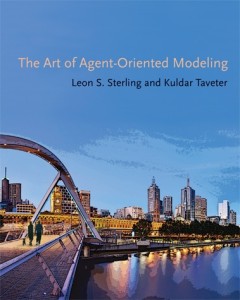
The art of agent-oriented modeling / The Art of Agent-Oriented Modeling
A new approach for conceptualizing and modeling multi-agent systems that consist of people, devices, and software agents.
- Edition
- -
- ISBN/ISSN
- -
- Collation
- 1 online resource (xix, 367 pages) :
- Series Title
- -
- Call Number
- -
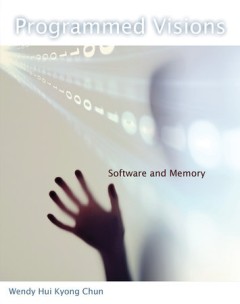
Programmed visions Software and Memory
Wendy Hui Kyong Chun argues that cycles of obsolescence & renewal result in part from the ways in which new media encapsulates a logic of programmability. In seeking to embody a future based on past data, new media becomes a metaphor for metaphor itself.
- Edition
- -
- ISBN/ISSN
- -
- Collation
- 1 online resource (xiii, 239 pages) : illustrations.
- Series Title
- -
- Call Number
- -
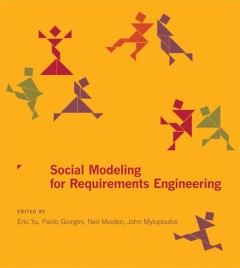
Social modeling for requirements engineering
Much of the difficulty in creating information technology systems that truly meet people's needs lies in the problem of pinning down system requirements. This book offers a new approach to the requirements challenge, based on modeling and analyzing the relationships among stakeholders. Although the importance of the system-environment relationship has long been recognized in the requirements en…
- Edition
- -
- ISBN/ISSN
- -
- Collation
- 1 online resource (vi, 736 pages) :
- Series Title
- -
- Call Number
- -
Software studies : A Lexicon
This collection of short expository, critical and speculative texts offers a field guide to the cultural, political, social and aesthetic impact of software. Experts from a range of disciplines each take a key topic in software and the understanding of software, such as algorithms and logical structures.
- Edition
- -
- ISBN/ISSN
- -
- Collation
- 1 online resource (xii, 334 pages) : illustrations.
- Series Title
- -
- Call Number
- -
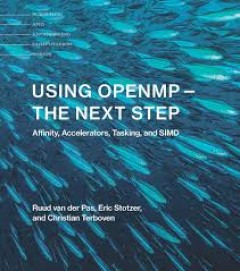
Using OpenMP—The Next Step: Affinity, Accelerators, Tasking, and SIMD
A guide to the most recent, advanced features of the widely used OpenMP parallel programming model, with coverage of major features in OpenMP 4.5.This book offers an up-to-date, practical tutorial on advanced features in the widely used OpenMP parallel programming model. Building on the previous volume, Using OpenMP: Portable Shared Memory Parallel Programming (MIT Press), this book goes beyond…
- Edition
- -
- ISBN/ISSN
- 9780262344012
- Collation
- 1 online resource (xxi, 365 pages) :illustrations.
- Series Title
- -
- Call Number
- -
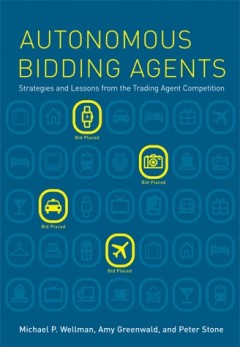
Autonomous bidding agents :strategies and lessons from the trading agent comp…
Overview and analysis of algorithmic advances developed within an integrated bidding agent architecture that emerged from recent research in a growing domain of AI.OCLC-licensed vendor bibliographic record.
- Edition
- -
- ISBN/ISSN
- 9780262285957
- Collation
- 1 online resource (xi, 238 pages) :illustrations.
- Series Title
- -
- Call Number
- -
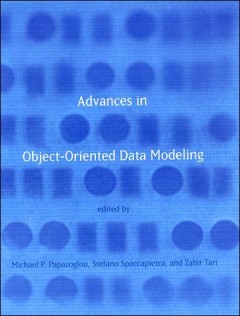
Advances in object-oriented data modeling
Until recently, information systems have been designed around different business functions, such as accounts payable and inventory control. Object-oriented modeling, in contrast, structures systems around the data--the objects--that make up the various business functions. Because information about a particular function is limited to one place--to the object--the system is shielded from the effe…
- Edition
- -
- ISBN/ISSN
- 9780262281218
- Collation
- 1 online resource (xxv, 367 pages) :illustrations.
- Series Title
- -
- Call Number
- -
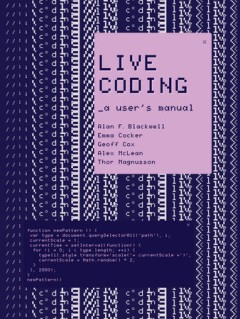
Live coding :a user's manual
"A multi-authored comprehensive introduction to live coding's potential open up deeper questions about contemporary cultural production and computational culture"--OCLC-licensed vendor bibliographic record.
- Edition
- -
- ISBN/ISSN
- 9780262372633
- Collation
- 1 online resource.
- Series Title
- -
- Call Number
- -
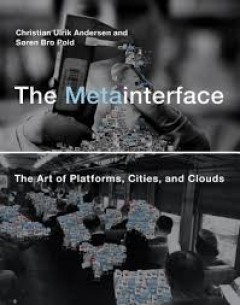
The Metainterface: The Art of Platforms, Cities, and Clouds
How the interface has moved from the PC into cultural platforms, as seen in a series of works of net art, software art and electronic literature. The computer interface is both omnipresent and invisible, at once embedded in everyday objects and characterized by hidden exchanges of information between objects. The interface has moved from office into culture, with devices, apps, the cloud, and d…
- Edition
- -
- ISBN/ISSN
- 9780262346559
- Collation
- 1 online resource (248 pages).
- Series Title
- -
- Call Number
- -
 Computer Science, Information & General Works
Computer Science, Information & General Works  Philosophy & Psychology
Philosophy & Psychology  Religion
Religion  Social Sciences
Social Sciences  Language
Language  Pure Science
Pure Science  Applied Sciences
Applied Sciences  Art & Recreation
Art & Recreation  Literature
Literature  History & Geography
History & Geography